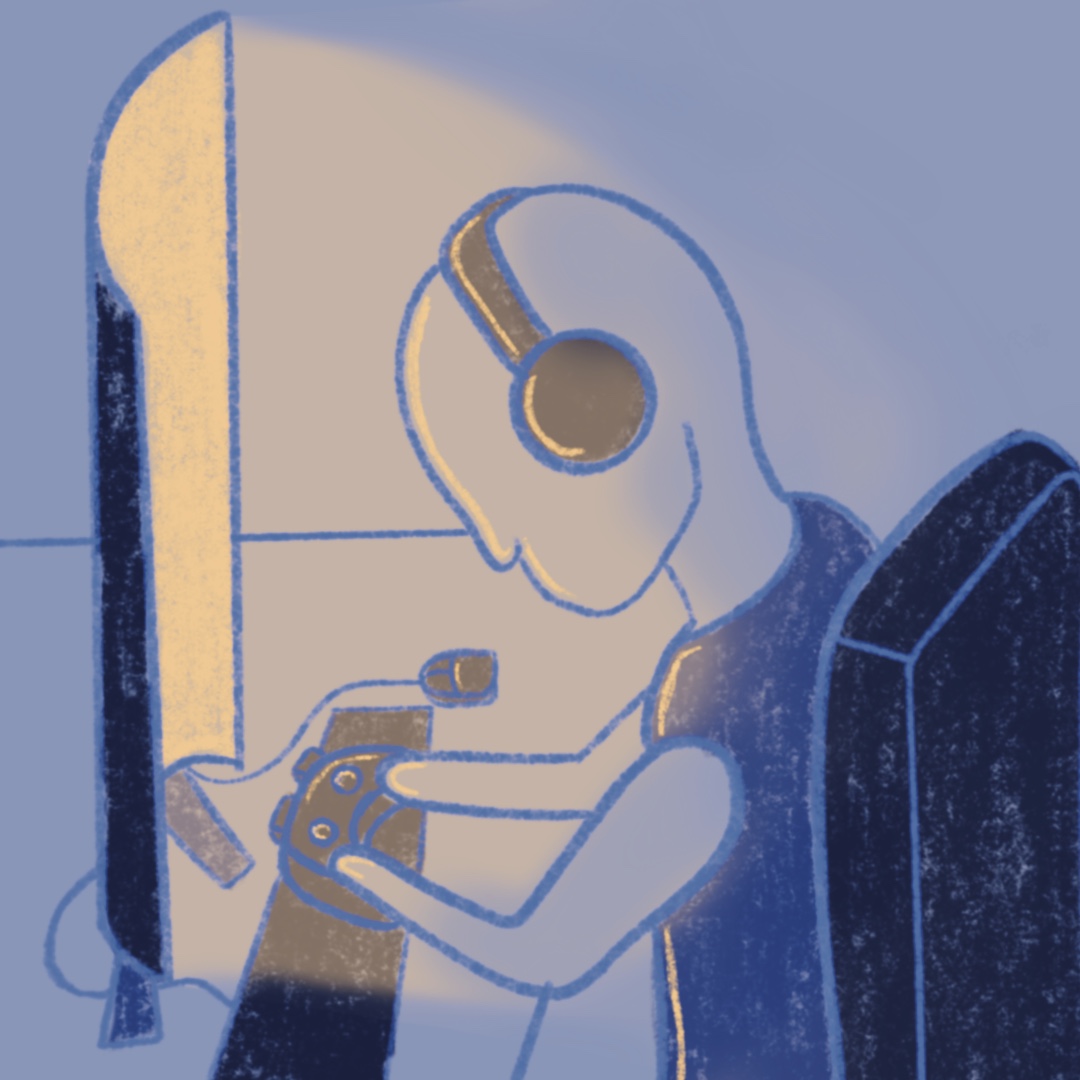To game or not to game, that is the question.
Gaming’s increase in popularity and impact on younger generations has raised concern among many members of society. Let’s assess the pros and cons of gaming and how it affects the social, physical, emotional and mental wellbeing of gamers across the globe.
Gaming is a platform for online communication and socialization.
“Our society suffers from an epidemic of loneliness, and gaming can be a vehicle to connect with others,” according to Harvard Health Publishing. Gaming helped me stay connected to my friends during breaks from school, including during the pandemic.
Conversely, excessive gaming can lead to avoidance of social interactions, which can affect the social wellbeing of gamers.
Physical health effects of gaming include improved reaction time and coordination, though the risk of physical detriment from gaming often outweighs the benefits.
The most prominent physical downside of gaming is inactivity, which can lead to obesity. Excessive gaming can also cause wrist, neck and elbow pain. Additionally, repetitive stress injuries, such as carpal tunnel syndrome, can arise and cause pain and inflammation. Sleep deprivation is a common, negative effect of gaming.
One of the most important benefits of gaming are the opportunities for improvement of problem solving skills and application of creativity and imagination. Problem solving is a major aspect of nearly every online, team-based video game. Games such as Minecraft, Terraria and Sims encourage imagination and individuality to create unique and extraordinary worlds. In an era of screens and devices, video games are able to harness technology to encourage creative thinking and problem solving through enjoyable scenarios.
Conversely, negative online interactions such as cyberbullying are very real issues. It is important that parents and gamers keep the risks of online interaction in mind and take precautionary measures to ensure safe online experiences.
To game or not to game, that is the question. The answer relies on one’s priorities.
There are inherent risks to joining the online world, as discussed earlier. Excessive gaming has many potential physical, mental, social and emotional downsides that are important to recognize and minimize for those who wish to participate in the online gaming world.
The word “excessive” is important. In moderation, video games can provide an incredibly enjoyable experience for their players. Gaming has connected millions of people across the world and continues to help gamers foster friendships. Many games challenge the critical thinking and problem-solving skills of their players and inspire creativity and individuality.
If gaming is not for you, or the potential negatives outweigh the potential positives, that’s okay! Remember that the gaming world is malleable and customizable; your gaming experience can be whatever you want. If you don’t value the social aspect of gaming and would prefer a solitary experience, there are countless single-player games out there that you might enjoy.
I have been on both spectrums of gaming. I have played video games excessively to a point where it crossed the line into time that I should have spent working on homework, sleeping or spending time with family and friends. I have also, especially since going to college, experienced life without gaming and wished that I could spend some of my free time relaxing while playing video games with my friends.
Gaming should take place during free time, and it should not interfere with other aspects of your life. Learning to balance the enjoyable experience of gaming with your other priorities will help you get the most out of the fun, relaxing opportunities gaming offers while minimizing the potential consequences of excessive gaming habits.
Moderation and balance are key. If gaming consumes your life and leads to inactivity and avoidance of social interaction, it is not beneficial. But if gaming offers opportunities to enjoy your free time in a fun and relaxing environment, as it often has for me, then gaming is a great choice for you!
Jacob Freshly is an opinion writer. Contact him at jfreshl1@kent.edu.


